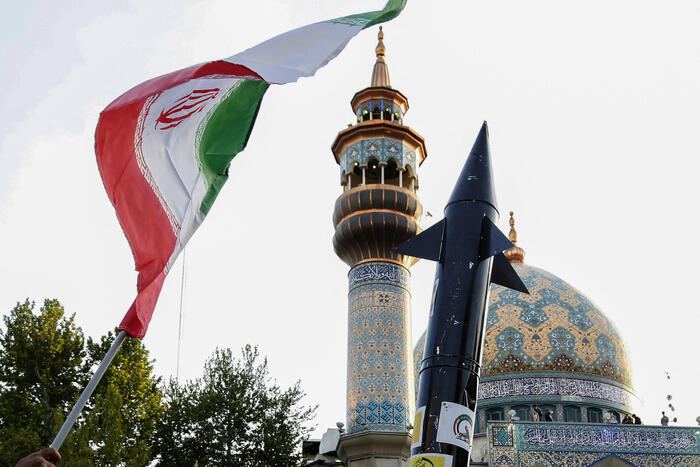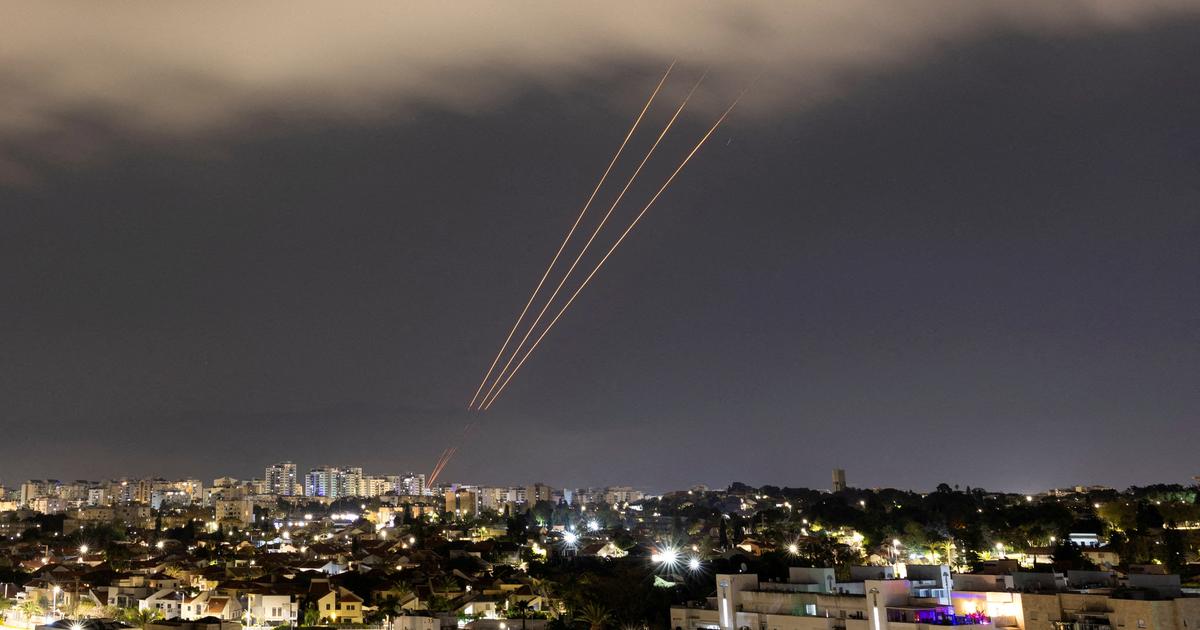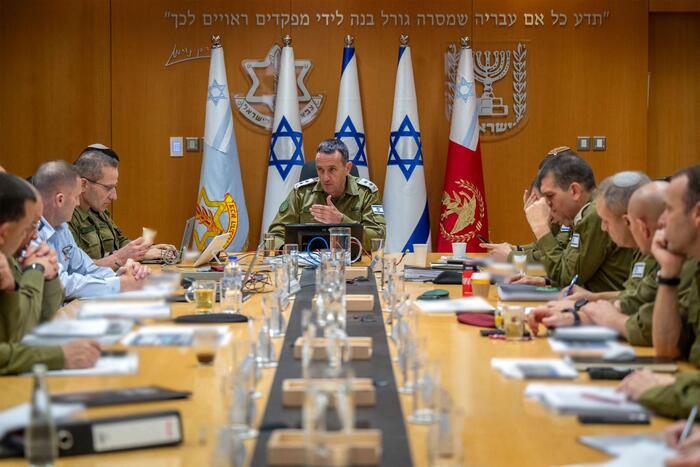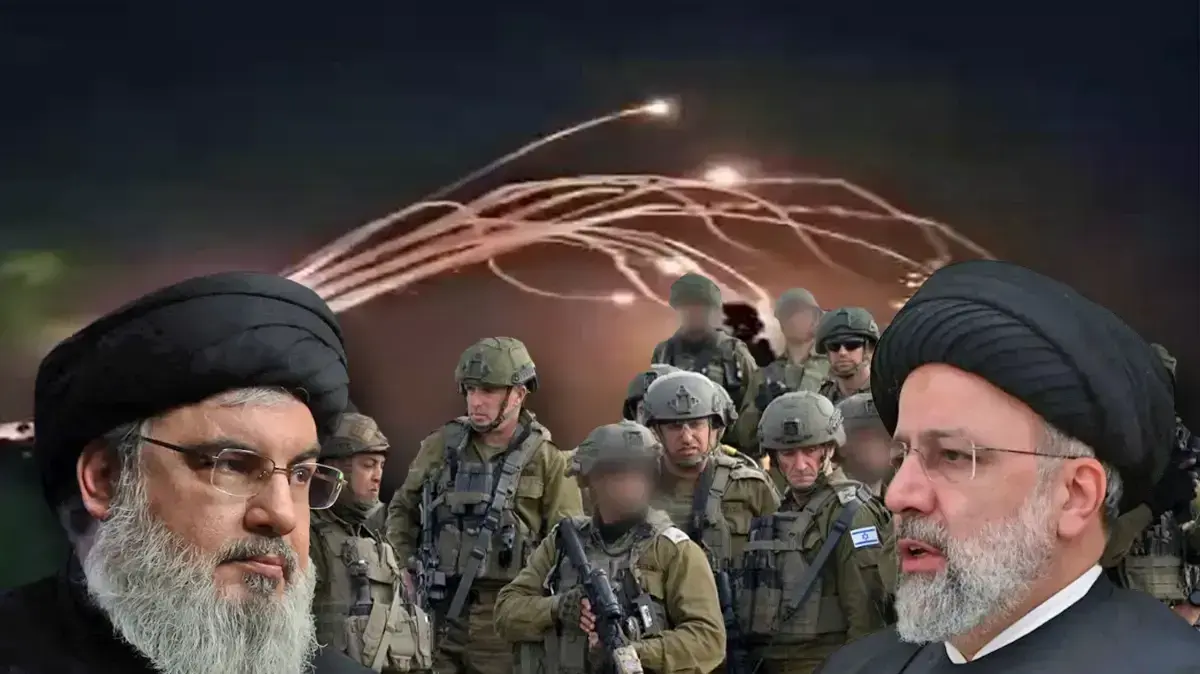The Israeli Prime Minister, Benjamin Netanyahu, on the 13th at a ceremony in Jerusalem.Reuters
Israel has realized that the Joe Biden Administration does not seek to improve the conditions of the nuclear agreement with Iran, signed by also Democratic President Barack Obama six years ago, but to return to the starting box of 2018, when Republican Donald Trump suspended its validity, aligning the United States with strategic Israeli interests.
Since then, the Iranian nuclear challenge has not stopped growing.
By signing the agreement, Iran promised not to enrich uranium above 3.67%, a limit suitable for civil uses.
Following the breakup of Washington three years later, he raised the bar to 20%.
And up to 60% after the recent sabotage at the Natanz uranium enrichment plant, for which Tehran blames Israel.
In 2015, Iranian experts needed at least a year to produce a nuclear warhead.
Western estimates suggest that a few months would now suffice.
After months without convening the Security Cabinet, the government body that decides on the war, Prime Minister Benjamin Netanyahu found on Sunday that he had backfired in his struggle to prevent the United States from reactivating the nuclear agreement with Iran.
More information
Iran accuses Israel of sabotage of its main nuclear plant
Iran puts pressure on nuclear deal negotiations by raising uranium enrichment to 60%
In the midst of an unusual wave of leaks aired by the Hebrew press, the civil and military intelligence services warned the Government that the talks taking place in Vienna between Tehran and the great powers are on the way to resuming the validity of the pact in a few weeks. atomic, suspended by Trump to make way for a strategy of "maximum pressure" and sanctions.
Mossad (foreign espionage) and military intelligence have conveyed to the Security Cabinet that, despite pressure to stop or postpone the reissue of the nuclear agreement, Israel must prepare for the US to reactivate it together with the other four permanent members of the Council. of Security of the UN - Russia, China, France and the United Kingdom - and Germany, with the mediation of the European Union. This is the most predictable outcome, as revealed to Barak Ravid, diplomatic correspondent for the information portal Axios, who attended the secret meeting.
Israel has now opted for diplomatic pressure, and will send National Security Adviser Meir Ben Sabbat to Washington next week; to the Chief of the Armed Forces, General Avi Kochavi, and to the Director of Mossad, Yossi Cohen, to meet with their American counterparts. The Jewish state has become a mere spectator to the nuclear negotiation with Iran, which intends to close an agreement "before the presidential elections called in June in Tehran," according to the analyst of the
Haaretz
newspaper
,
Zvi Barel.
The secret naval war between Israel and Iran in recent months has resulted in a string of skirmishes in the waters of the Indian Ocean, the Persian Gulf, the Mediterranean and the Red Sea. The escalation of incidents has been marked by the unusual Israeli recognition of the responsibility of actions against ships of the Guardians of the Iranian Revolution. Also with leaks to the US press about the wave of Israeli attacks on Iranian tankers headed for Syria. In retaliation, Iranian naval commandos have struck Israel at its weakest point: the merchant shipping lines of the Haifa port sailing away from the waters patrolled by its Navy.
After the naval warfare emerged, Tehran was quick to accuse Israel of sabotage on the 11th at the Natanz underground plant, a key center of the Iranian atomic program. In the Hebrew press, meanwhile, he became aware of the close competition between Mossad and military intelligence for claiming responsibility for the covert operation against the nuclear power plant, supposedly aimed at improving the US negotiating position after the halting of uranium enrichment.
"Israel may no longer have any alternative but to recognize Iran's nuclear potential and accept the validity of a balance of terror between enemies hiding behind ambiguity about their atomic arsenal, one already confirmed and another on the threshold of achieving it. ”Considers Israeli analyst Daniel Kupervaser.
It is foreseeable, in his opinion, "the continuity of a lukewarm war between scouts, since a large-scale armed confrontation seems to be out of the possibilities of both parties."
Netanyahu, more alone in the international arena
In his speech on the Holocaust Remembrance Day in Jerusalem, Netanyahu affirmed on the 7th that Israel will not feel obliged by an eventual reactivation of the nuclear agreement with Iran and that it will do everything in its power to prevent its implementation.
Now he seems to be much more alone in the international arena than when he tried to stop him in 2015, with a controversial speech in the US Capitol that was a frontal rudeness to Obama.
Following Trump's departure from the White House, Israel's regional allies are trying, in turn, to reposition themselves on the geopolitical board.
It has just transpired that Iran and Saudi Arabia have started direct talks this month, with the alleged mediation of Iraq, to reduce the tensions they face and restore the bilateral relations that broke five years ago.
It is also becoming clear - according to
The Washington Post
- that the Biden Administration views Israel's military and diplomatic actions against the reactivation of the Iran nuclear deal as detrimental to the interests of the United States. The situation in 2018 should serve as a starting point for a regional negotiation that includes, among other aspects, Tehran's ballistic missile program and the intervention of Iran and its Shiite allies in conflicts such as those in Syria and Yemen.
Everything indicates that Israel's tension with Iran is aimed at torpedoing the Vienna negotiation, which is moving towards an agreement in principle. The Iranian president estimated Tuesday that the talks have made "progress on 60% to 70% of the issues on the table." But the escalation off Tehran may also be due to internal considerations of the Jewish state. It also coincides with the beginning of the evidentiary phase in the corruption trial against Netanyahu and with the prime minister's growing difficulties in forming a government coalition after the legislative elections on March 23, the fourth in just two years.
"The attributions of responsibility (of the covert operations) and the spiral of incidents leaked to the media are aimed at creating the sensation of a national security crisis," argues Yaakov Katz, editor of
The Jerusalem Post
, in a reflection on the crisis. . "But it is hard to believe that Netanyahu is seeking open warfare," he concludes. "Rather, he tries to convince his rivals (of the Israeli nationalist right) to join his government against Iran."

/cloudfront-eu-central-1.images.arcpublishing.com/prisa/SACJT6T5FWTGJRUEUYREKGNF5E.jpg)











